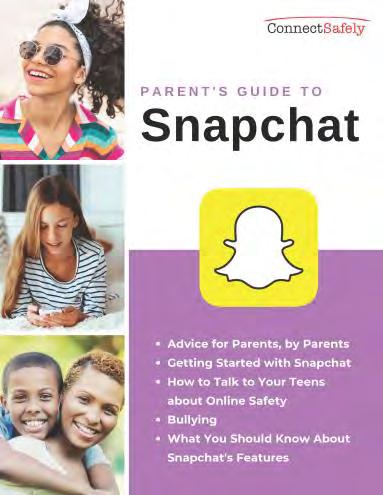

Confronting Cyberbullying and Unwise
Social Media Use in Tech-Savvy Kids
Sameer Hinduja, Ph.D.
Cyberbullying Research Center
Tuesday, March 18th, 2025
Brookwood School District 167




hinduja.org





















































14.2% were victims of offline dating violence
11.1% were victims of online dating violence
81.1% of victims online were also victims offline
62.9% of victims offline were also victims online



hinduja.org




Sexting
by the numbers

23.2% received a naked or semi-naked image of someone from school

14.3% sent a naked or semi-naked image of themselves to others

23.8% have been asked to send a naked or semi-naked image of themselves

11.3% asked someone else for a naked or semi-naked image of themselves
















Communication is Key
With both their offline and online activities

• Don’t say mean things
• Be careful when you are cranky
• Call it out when others are mean
• Remind them of family standards Watch your own words Watch your own words
• See where they are going
• They can teach you!
• Enter their world
• The earlier the better Go online with your kids








• What apps or games do you enjoy daily?
• What apps or games are you moving away from?
• Have you ever received a message from someone that made you sad? How did you respond?
• Have you ever dealt with super heavy emotions based on something posted or shared about you?
• What keeps you from reaching out to adults?
• How do you support others online?
• How do you support yourself online?
• Shall we check our Safety settings together?








Students with low empathy were 1.8 times as likely to bully someone at school in the last 30 days and 2.3 times as likely to cyberbully someone in the last 30 days.

Students with high empathy were 2.3 times less likely to bully someone and 2.7 times less likely to cyberbully someone.































































(Reivich & Shatte, 2002)






























































Appreciating beauty
I appreciate art, music, dance, or other expressions of beauty.
Forgiving
I don’t try to get even. I accept that my friends and loved ones will be imperfect.
Careful judgment
I think things through and make decisions after I have all the facts.
Teamwork
I’m good at working with a group.
Hope I believe I can achieve my goals.
Leadership
I’m able to take charge and help a group work well together.
Curiosity
I find the world a very interesting place and like to be involved in new things.
Persistence
I keep doing what I think is important even when things get difficult or I fail.
Humility
I don’t act as if I’m special, don’t brag, and am humble about good things that have happened to me.
Capacity for love I can express and receive love.
Feeling grateful I express gratitude and I’m thankful.
Kindness
I help friends, go out of my way to cheer others up, and love to make others happy.
Capacity for friendship I can be a good friend to others.
Humor
I use humor to brighten others’ day. I try to add humor to whatever I do.
Love of learning I love to learn and grow.
Being fair
I admit when I’m wrong and try to treat all people equally.
Honesty
I tell people what I care about, keep promises, and don’t lie.
Creativity
I like to come up with new ideas and new ways of doing things.







How to break the habit:
1) Do the math! (7 hours of social media time a day = ?????)
2) Admit that you have lost control, and that it’s affecting your life
3) Leave the phone somewhere else before bedtime
4) Set up screentime limits and do not ignore, override, or change them (duration, start time in the day, end time at night, etc.)
5) Use Do Not Disturb
6) Greyscale your phone
7) Delete the most problematic app(s)
8) Turn off all non-essential push notifications/alerts
9) Unfollow accounts that have a hold on you
10) Establish tech-free zones
11) Consider minimalist phones (Pinwheel, Gabb, Bark, Troomi)
12) Ask your family and friends to check in and provide accountability (and even rewards)



















Tech Use Regulation
Setting the Standards For Your Kids
Household Rules:
Grades ↓, tech use ↓
Diligence in chores ↓, tech use ↓
Keep devices in designated location at night
Require financial responsibility








Is my child physically healthy and sleeping enough?


Is my child connecting socially with family and friends (in any form)?

Is my child engaged with and achieving in school?
Is my child pursuing interests and hobbies (in any form)?
Is my child having fun and learning in their use of digital media?













Casey loves playing games on his Xbox console, especially since it allows him to link up to and compete with other players across the world on Xbox Live. He recently met one teenager in Russia named Boris while playing Overwatch, and they became fast friends because both enjoyed and excelled at it. Together, they became almost unbeatable whenever they competed as a team against other teams online. At some point, though, Casey told Boris he had found a better gaming partner and didn’t want to play with Boris anymore. Boris was outraged that he was being “dumped” as a gaming partner for someone else, and he began to tell other people on the gaming network that Casey “sucked” at gaming and no one should ever be his partner unless they wanted to lose really badly. Soon after these statements started circulating, Casey’s new gaming partner dumped him, and everyone else on the network started to reject him (which was particularly crushing because online gaming was a safe haven in his difficult life). When coupled with recollections of other instances of rejection in his life, this experience began to make Casey feel completely hopeless. He then started to express suicidal intentions to his sister.



• Can this really be characterized as cyberbullying?
• How would you handle this as a school administrator?
• How would you handle this as a parent?
• What should his sister do and how can schools equip her to respond effectively to Casey’s problems?
• Who could Casey reach out to help him deal with how he is feeling?
• Does Boris deserve any punitive actions taken against him?
• Have you experienced anything similar while gaming?
• What did you do?



For youth who already have full access:
1) re-establish rules and expectations re: attitudes, behaviors
2) negotiate what it will take to not lose device time
3) ask to follow them on Snapchat, Instagram, and TikTok
4) Set up Family Pairing (TikTok) (turn on Restricted Mode, Disable DMs, see & control screentime)
5) Set up Supervision (Instagram) (see who child is following and vice versa, see & control screentime, get a notification for new followers)
6) Set up Family Center (Snapchat) (see teen's friends list, see accounts with which teen has communicated in last 7 days)
7) https://cyberbullying.org/social-media-and-tech-misuse-scenarios
8) https://cyberbullying.org/questions-parents-should-ask-their-childrenabout-technology
9) discuss gaming, livestreaming, mature content, and that you are *trusting* them
10) communicate regularly with positivity and encouragement!


hinduja.org
cyberbullying.org @hinduja









For youth who are just starting out:
1) establish rules and expectations re: attitudes, behaviors
2) negotiate what it will take to not lose device time
3) purchase Pinwheel, Gabb, Bark, or Troomi phone
4) see how they do and if they prove trustworthy with their phone, messaging, and limited apps over time
5) co-use phones, tables, laptops, and gaming consoles!
7) https://cyberbullying.org/social-media-and-tech-misuse-scenarios
8) https://cyberbullying.org/questions-parents-should-ask-their-childrenabout-technology
9) discuss gaming, livestreaming, mature content, and that you are *trusting* them
10) communicate regularly with positivity and encouragement!













































Common Sense Media 2024-25 Teens 13 to 18



















Ten Prevention Tips for Parents
• Co-Use Generative AI tools
• Prompts (appropriateness, privacy, bias)
• Hallucinations
• Critical evaluation of output (parroting?)
• Unethical use (malicious and non-malicious)
• Ask the tool for sources/citations
• Disclose use to school, work, etc.
• Have a healthy skepticism with possible bots
• Trust their senses, subconscious, and heuristics
• Stay involved!




















